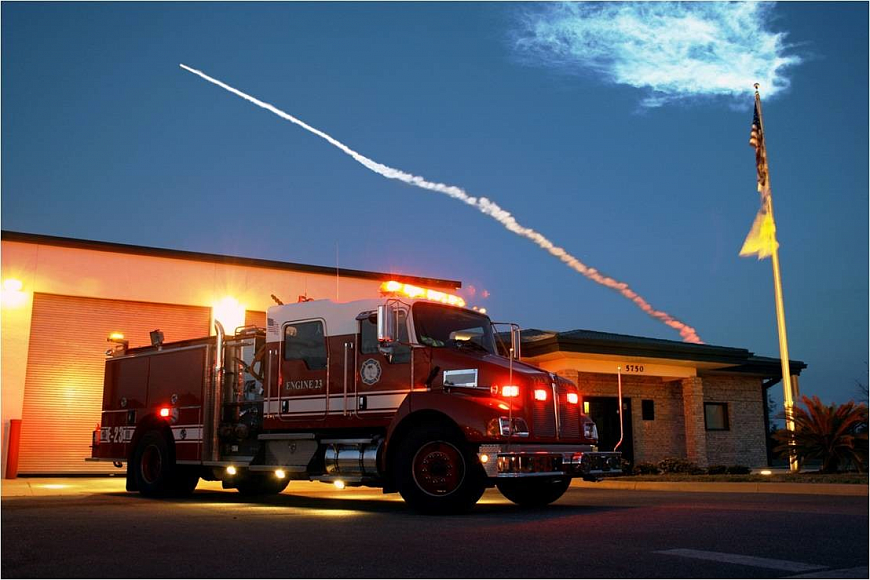- April 16, 2024
-
-
Loading

Loading

Each year, Flagler County spends thousands of dollars on ambulance trips for a small number of repeat callers who don’t really need them.
The callers are mostly elderly, and the reasons for the calls are often clearly not emergencies: Someone who thinks they may have forgotten to take a medication. A minor fall. They call because their water was turned off, or their cable is out, or because they’re simply lonely.
That puts the county in a bind: For liability reasons, it can’t just refuse to send an ambulance to someone who insists they need one, or refuse to transport them. Nor can the hospital easily refuse to admit them.
Many such callers are uninsured or under-insured, and run up large bills they can’t pay — leaving the county stuck with the cost.
“A lot of the people are using the EMS and the emergency room as their primary care,” Flagler County Fire Chief Don Petito told County Commissioners during a presentation at an Aug. 1 County Commission workshop. “Those are the patients that continually call 911, and they call it repeatedly. … Fall victims, dementia patients, people that can’t get their medication, people that overdosed, just recently released cardiac patients or respiratory patients … the lonely people, or their water got turned off, or their cable’s not working. They’re calling 911, because they don’t know who else to call.”
He gave an example.
“The water turn-off happened two weekends ago right across from my house,” Petito said. He was inside, he said, when he looked out and saw a rescue vehicle and two law enforcement patrol cars across the street. “I walked outside asked them what happened. The toilet got clogged, and they called 911 saying, ‘I can’t use the toilet.’ It came in as a medical call. Our guys went over and unclogged the toilet and turned the water back on.”
In Flagler County, there seem to be about 15 such patients, Petito said.
One patient called 911 and was taken to the hospital 60 times, running up a $68,565 EMS bill, which has not been paid. Another called 57 times and was transported 23 times, and owes $9,431, the vast majority of the total bill. A third called 36 times, was transported 36 times, and still owes $12,528, also the majority of his bill.
The county may have a solution: a proposed community paramedic program that could help the repeat callers without taking take them to the ER. It would cost some money — about $77,500 to staff the paramedic position, including training — but that’s less than the $830,000 the county could have to spend to add and staff an additional ambulance to keep up with rising call volume, Petito said.
“It increases the access to the primary and preventive care, instead of them accessing the 911 and emergency medical care,” he said. “And it helps provide the wellness interventions in the home, decreasing the emergency department utilization.”
With the proposed program, he said, the county would identify its repeat callers, then, “We’re going go to that home and make sure they’re taking their medication, we’re going to make sure they’ve been in contact with their physician … on a regular rotation.”
The program would dovetail with community health initiatives at Florida Hospital Flagler, said FHF Chief Medical Officer Dr. Ron Thomas.
“One of the missions of Florida Hospital Flagler is not only to treat effectively acute illnesses, but to create health in the community,” he said. “We at the hospital feel that this would be a welcome adjunct to the development of good community health, enhancing public health within the community. And I’m sincerely confident, as I’ve seen this work in other communities, that this kind of program will definitely make a difference in the mitigation of the use of EMS … and, I believe, improve the overall health of the community.”
The proposal will return to the County Commission for a vote at a future meeting.
“We’ve come full circle, haven’t we?” County Commissioner Nate McLaughlin said. “It’s a little retro, isn’t it? The doctor is going to come to the house, so to speak.